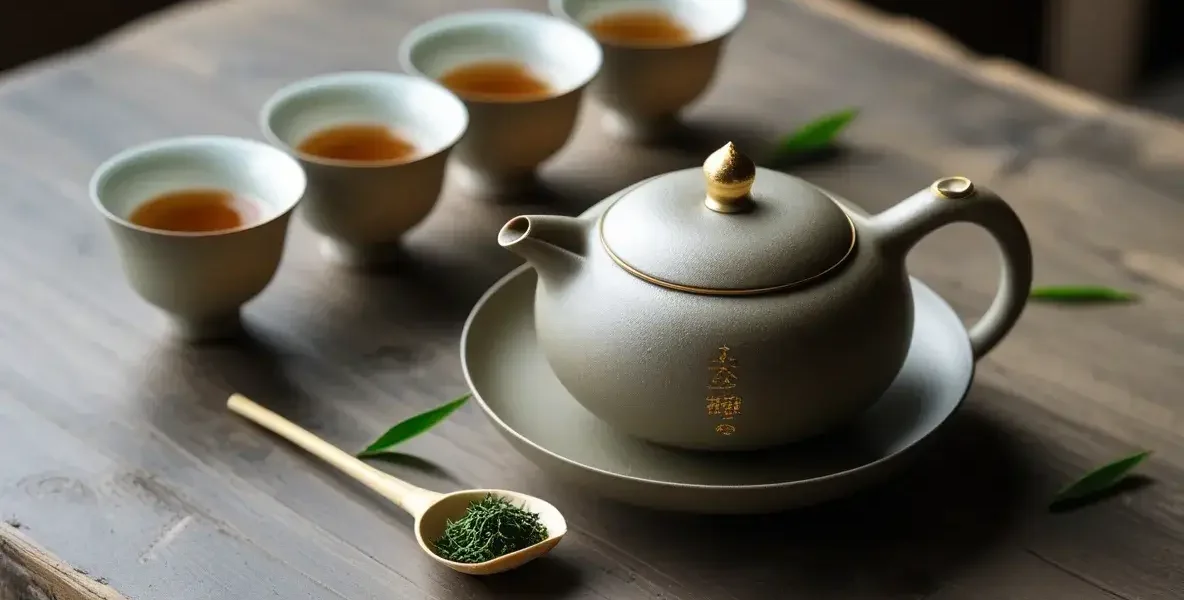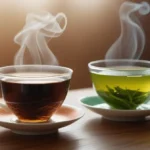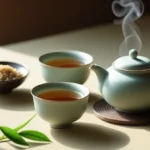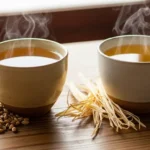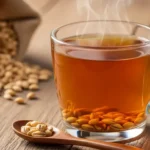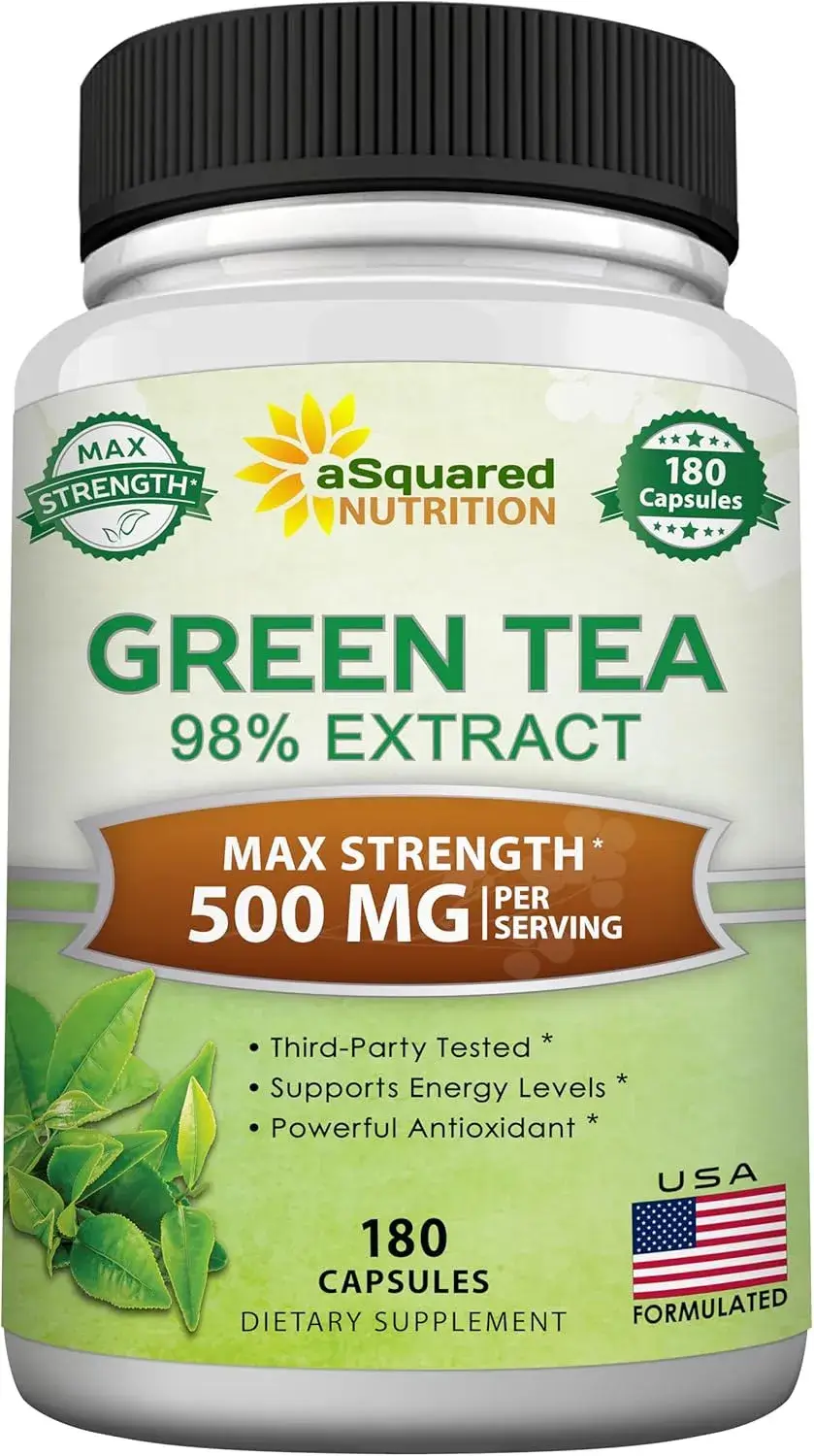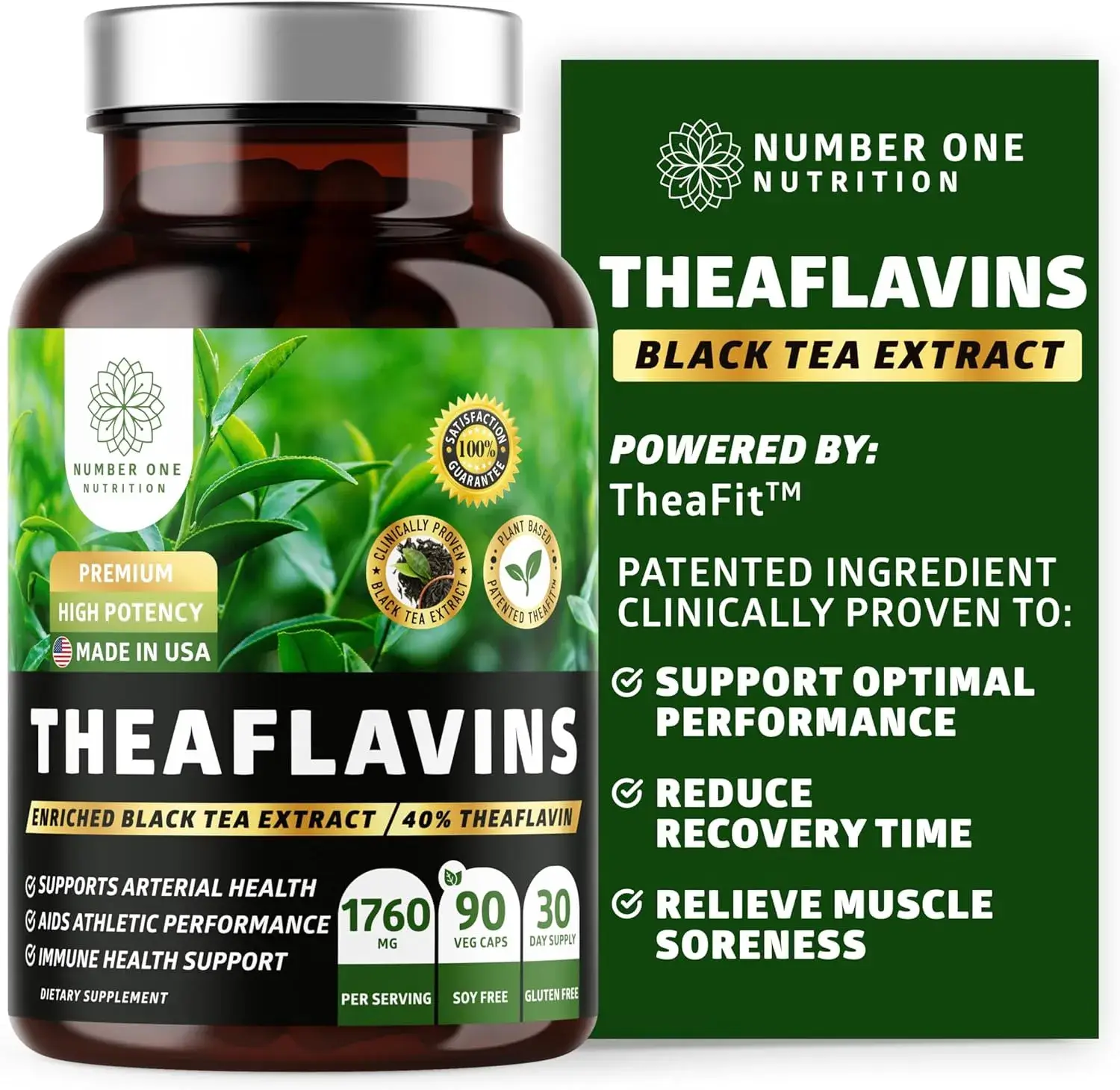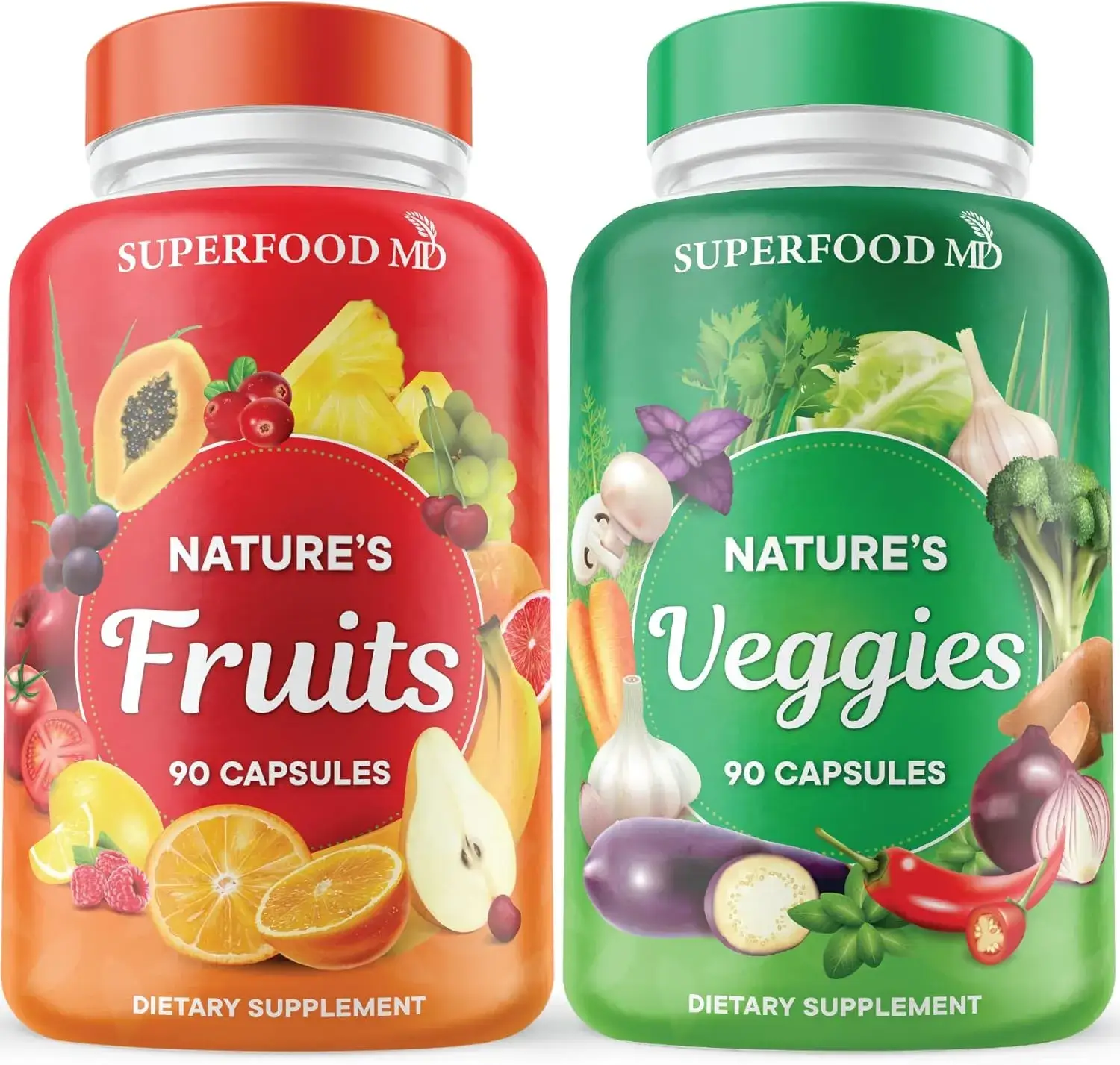Table of Contents
If you’ve ever wondered about genmaicha tea and its caffeine content, you’re not alone. Many people enjoy this unique blend of green tea and roasted brown rice, but they often ask, “Genmaicha tea does it have caffeine?” In this article, we’ll break down everything you need to know about genmaicha, including its caffeine levels, how it’s made, and its health benefits. So, let’s get started!
Key Takeaways
- Genmaicha tea does contain caffeine, but typically less than regular green tea.
- On average, a cup of genmaicha has about 15-30 milligrams of caffeine.
- Caffeine levels can vary based on the type of green tea used and the brewing method.
- Cold brewing can reduce caffeine extraction, but it won’t eliminate it completely.
- Choosing genmaicha made from bancha leaves can lower caffeine content.
Understanding Genmaicha Tea
What Is Genmaicha?
Genmaicha, often called “brown rice tea,” is a fascinating Japanese green tea. It’s a blend of green tea leaves, usually sencha or bancha, and roasted rice. This mix gives it a distinctive character that sets it apart from other teas. The rice component was initially added to extend tea supplies, but it quickly became a beloved flavor combination.
The Unique Flavor Profile
Genmaicha boasts a really unique flavor. You get the grassy notes from the green tea, balanced by the nutty and toasty flavors from the roasted rice. Sometimes, you’ll even find popped rice in the mix, which adds a popcorn-like aroma. This makes it a comforting and accessible tea, even for those new to green tea. It’s a very approachable tea, and the flavor is well liked by most people the first time they drink it.
Cultural Significance of Genmaicha
Genmaicha has deep roots in Japanese culture. Originally, it was considered a “people’s tea,” enjoyed by those who needed to stretch their tea supply. Over time, it has become a staple in Japanese households and tea shops. It’s often served during meals and is known for its gentle flavor, making it a great everyday tea. It’s also quite forgiving to higher brewing temperatures, so it can be a good tea to practice with as you are getting used to Japanese green tea brewing.
Genmaicha is more than just a drink; it represents resourcefulness and a connection to Japanese traditions. It’s a reminder that simple ingredients, when combined thoughtfully, can create something truly special.
Here’s a quick look at why people love genmaicha:
- Unique flavor combination
- Gentle and comforting
- Easy to brew
👉 Awaken Your Senses with Premium Genmaicha Tea – Claim Yours 👈
Genmaicha Caffeine Content

Average Caffeine Levels
So, you’re curious about the caffeine content in genmaicha? Well, here’s the deal: genmaicha generally has less caffeine than your average cup of green tea. This is because it’s mixed with roasted rice, which dilutes the tea leaves. Typically, you’ll find around 15-30 milligrams of caffeine in a cup. Of course, this is just an average, and the actual amount can fluctuate.
Factors Affecting Caffeine Content
Several things can influence the caffeine content in genmaicha:
- The type of green tea used (sencha, bancha, etc.).
- The ratio of tea leaves to roasted rice.
- The brewing time and temperature.
- Whether matcha is added (Matcha-iri Genmaicha).
It’s worth noting that even small changes in these factors can lead to noticeable differences in the final caffeine level. So, if you’re particularly sensitive to caffeine, it’s a good idea to experiment a bit to find a brew that works for you.
Comparison with Other Teas
When we talk about genmaicha vs other teas caffeine, it’s helpful to have some context. Here’s a quick comparison:
| Tea Type | Approximate Caffeine (mg/cup) |
|---|---|
| Genmaicha | 15-30 |
| Green Tea | 30-50 |
| Black Tea | 40-70 |
| Coffee | 95-200 |
As you can see, genmaicha is on the lower end of the spectrum. This makes it a decent choice if you’re trying to cut back on caffeine but still want to enjoy a warm beverage. Keep in mind that how much caffeine in green tea varies, and green tea caffeine levels are affected by the same factors as genmaicha. Also, the effects of caffeine in green tea are generally milder than coffee due to the presence of L-theanine, which promotes relaxation.
Does Genmaicha Have Caffeine?

Caffeine Presence in Genmaicha
So, is genmaicha tea caffeinated? The simple answer is yes. Genmaicha isn’t caffeine-free, as it contains green tea leaves, which naturally have caffeine. The amount, however, is generally lower than in a standard cup of green tea due to the addition of roasted rice. This makes it a popular choice for those looking to reduce their caffeine intake without giving up tea altogether. Whether or not does genmaicha keep you awake depends on your sensitivity to caffeine.
Common Misconceptions
One common misconception is that genmaicha is caffeine-free because of the rice content. While the rice does dilute the tea leaves, it doesn’t eliminate the caffeine entirely. Another misconception revolves around brewing methods; some believe that rinsing the tea leaves before brewing removes all the caffeine, but this only reduces it slightly. It’s important to understand that how much caffeine is in genmaicha depends on several factors, not just the presence of rice.
Health Considerations
For individuals sensitive to caffeine, genmaicha can be a good alternative to higher-caffeine teas and drinks. However, it’s still important to be mindful of your consumption, especially if you’re pregnant, breastfeeding, or have underlying health conditions. While the caffeine levels are lower, they can still affect sleep patterns and anxiety levels in some people. If you’re concerned about caffeine intake, consider these points:
- Monitor your body’s reaction to genmaicha.
- Limit consumption later in the day.
- Explore other herbal teas that are naturally caffeine-free.
Genmaicha offers a middle ground for tea lovers who want some caffeine without the full jolt. It’s all about finding the right balance for your individual needs and preferences.
👉 Experience Top-Quality Genmaicha Tea – Seal the Deal Today 👈
Brewing Methods and Caffeine Extraction

Hot Brewing vs. Cold Brewing
Hot brewing and cold brewing dramatically change the caffeine extraction from genmaicha. Hot water pulls out caffeine more efficiently, leading to a stronger brew. Cold brewing, on the other hand, is a gentler process. It requires a much longer steeping time, but it results in a tea with less caffeine and a smoother flavor. If you’re sensitive to caffeine, cold brewing is definitely worth a try.
Impact of Brewing Time
The longer you brew genmaicha, the more caffeine will end up in your cup. A short steep – say, two to three minutes – will give you a lighter, less caffeinated brew. Extending the brewing time to five minutes or more will extract more caffeine, along with other compounds that can affect the tea’s flavor. Experiment to find the sweet spot that balances your desired caffeine level with the taste you enjoy.
Choosing the Right Temperature
Temperature plays a big role in caffeine extraction. High temperatures extract caffeine more quickly and efficiently. Using water that’s too hot can also scorch the tea leaves, leading to a bitter taste. For genmaicha, it’s generally recommended to use water that’s around 175°F (80°C). This temperature allows for good flavor extraction without pulling out excessive caffeine or causing bitterness.
Brewing temperature and time are key factors in controlling the caffeine level of your genmaicha. Experimenting with these variables allows you to customize your tea to your personal preferences and sensitivity to caffeine.
Lowering Caffeine in Genmaicha

Selecting Low-Caffeine Blends
One of the easiest ways to reduce your caffeine intake from genmaicha is to start with a blend that naturally contains less caffeine. Bancha leaves, being older and tougher, have less caffeine than younger sencha leaves. So, opting for a genmaicha made primarily with bancha can make a noticeable difference. Always check the label or ask your vendor about the tea leaf composition.
Cold Brewing Techniques
Cold brewing is a fantastic method for extracting less caffeine from your genmaicha. Hot water pulls out caffeine more efficiently, so using cold water significantly reduces the amount that ends up in your cup. Here’s a simple guide:
- Use cold, filtered water.
- Steep the tea leaves for a longer period (6-8 hours) in the refrigerator.
- Strain and enjoy!
Cold brewing not only lowers caffeine but also results in a smoother, sweeter flavor profile, as it avoids extracting bitter compounds.
Decaffeination Methods
While you can’t fully decaffeinate genmaicha at home without specialized equipment, understanding the methods used commercially can inform your choices. Common methods include:
- Solvent Extraction: Uses solvents like ethyl acetate to remove caffeine.
- Carbon Dioxide Method: Employs supercritical carbon dioxide to extract caffeine.
- Water Processing: Uses water to draw out caffeine, considered the most natural method.
Alternatively, you can create a caffeine-free version by brewing just the roasted rice (genmai) component of genmaicha. While it won’t be the same as traditional genmaicha, it offers a warm, cereal-like flavor without any caffeine.
👉 Enjoy the Best Genmaicha Tea Blend Ever – Make It Yours 👈
Genmaicha Variants and Their Caffeine Levels

Sencha vs. Bancha in Genmaicha
Genmaicha, at its heart, is a blend, and the type of green tea used significantly impacts its caffeine level. The most common varieties are sencha and bancha, each bringing a different caffeine punch to the mix.
- Sencha generally has a higher caffeine content compared to bancha.
- Genmaicha made with sencha will give you a bigger boost.
- Bancha-based genmaicha is a milder, more relaxed option.
Choosing between sencha and bancha in your genmaicha is like picking your adventure level. Want a lively morning cup? Go for sencha. Prefer a chill afternoon brew? Bancha is your friend.
Matcha-iri Genmaicha
Matcha-iri genmaicha is genmaicha with added matcha. Matcha, being powdered green tea, has a higher concentration of caffeine than loose leaf teas. So, adding matcha to genmaicha will increase the overall caffeine content. If you’re looking for a more intense flavor and a bigger energy kick, matcha-iri genmaicha is the way to go. Just be mindful of the increased caffeine, especially if you’re sensitive.
Flavored Genmaicha Options
While less traditional, flavored genmaicha is becoming more popular. These variations might include additions like ginger, citrus peels, or other herbs. The caffeine level in these flavored genmaicha options primarily depends on the base tea used (sencha or bancha) and whether any additional caffeinated ingredients are added. Always check the ingredient list if you’re watching your caffeine intake. The flavorings themselves usually don’t contribute caffeine, but they can certainly change the overall experience.
| Type of Genmaicha | Typical Caffeine Level | Notes |
|---|---|---|
| Sencha-based | Higher | More stimulating |
| Bancha-based | Lower | Gentler, good for evening |
| Matcha-iri | Highest | Strong flavor and caffeine boost |
| Flavored | Varies | Check ingredients for added stimulants |
Health Benefits of Genmaicha

Antioxidant Properties
Genmaicha, like other green teas, is rich in antioxidants. These compounds help combat free radicals in the body, potentially reducing the risk of chronic diseases. The combination of green tea and roasted rice offers a unique blend of antioxidants, contributing to overall wellness.
Mental Health Benefits
Some people find genmaicha to be a comforting and mood-lifting beverage. The presence of L-theanine, an amino acid found in green tea, may promote relaxation and reduce stress. The aroma of roasted rice can also have a calming effect, making it a good choice for those seeking a moment of peace. The health benefits of genmaicha are not just physical; they extend to mental well-being.
Digestive Health Support
Genmaicha may offer some support for digestive health. The components in green tea can aid in digestion, and the roasted rice may provide a gentle source of fiber. While not a cure-all, incorporating genmaicha into a balanced diet could contribute to a healthy gut. The benefits of genmaicha tea are varied, and digestive support is one of them.
Drinking genmaicha can be a simple way to add some potential health benefits to your day. It’s not a magic potion, but the combination of green tea and roasted rice offers a unique and enjoyable way to support your well-being. Remember to enjoy it as part of a balanced lifestyle.
Here’s a quick look at some potential health effects of genmaicha:
- May help reduce inflammation.
- Could contribute to lower cholesterol.
- Might be good for the skin.
👉 Savor the Premium Genmaicha Tea Magic – Grab It Today 👈
Wrapping It Up: Genmaicha Tea Does It Have Caffeine?
So, to sum it all up, genmaicha does have caffeine, but not a ton. If you’re looking for a tea that’s easier on the caffeine scale, genmaicha is a solid choice. With about 15-30 milligrams of caffeine per cup, it’s lower than regular green tea. Just keep in mind that the exact amount can change based on the type of green tea used and how you brew it.
If you’re sensitive to caffeine, it’s smart to pay attention to how much you drink. Overall, genmaicha is a tasty option for tea lovers, especially if you enjoy that nutty flavor from the roasted rice. Whether you’re sipping it in the afternoon or evening, it can be a comforting drink without too much of a caffeine kick.
Frequently Asked Questions
What is genmaicha tea?
Genmaicha is a traditional Japanese tea made from green tea leaves mixed with roasted brown rice. This combination gives it a unique flavor.
Does genmaicha contain caffeine?
Yes, genmaicha does contain caffeine. However, it typically has less caffeine than regular green tea.
How much caffeine is in genmaicha?
On average, a cup of genmaicha has about 15 to 30 milligrams of caffeine, which is about half the caffeine found in regular green tea.
Can I reduce the caffeine in genmaicha?
Yes! You can lower the caffeine by cold brewing it or choosing blends made with bancha leaves, which have less caffeine.
Is genmaicha good for health?
Yes, genmaicha has several health benefits. It is rich in antioxidants and can help with digestion and mental health.
How does genmaicha taste?
Genmaicha has a unique flavor that is nutty and slightly sweet due to the roasted rice mixed with the green tea.
👉 Dive into the Best Genmaicha Tea Flavor – Get Your Cup Today 👈
